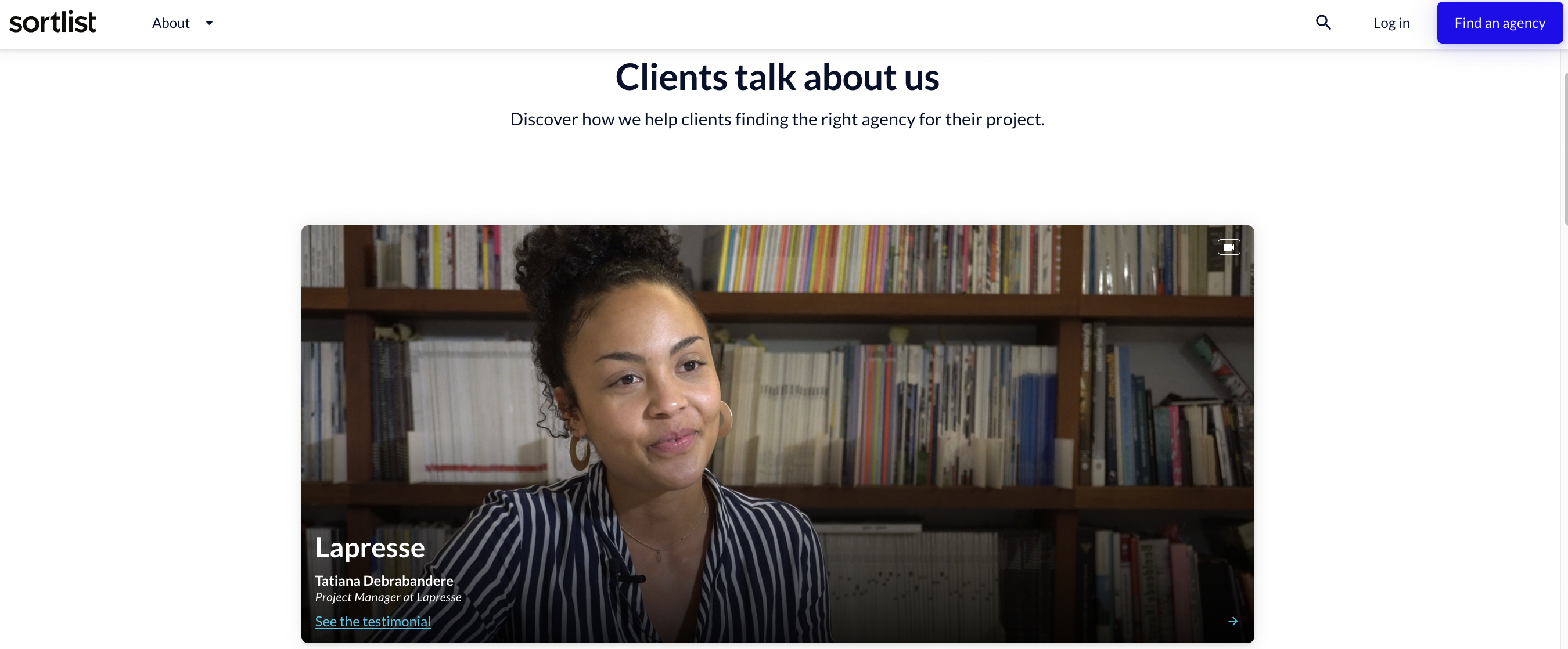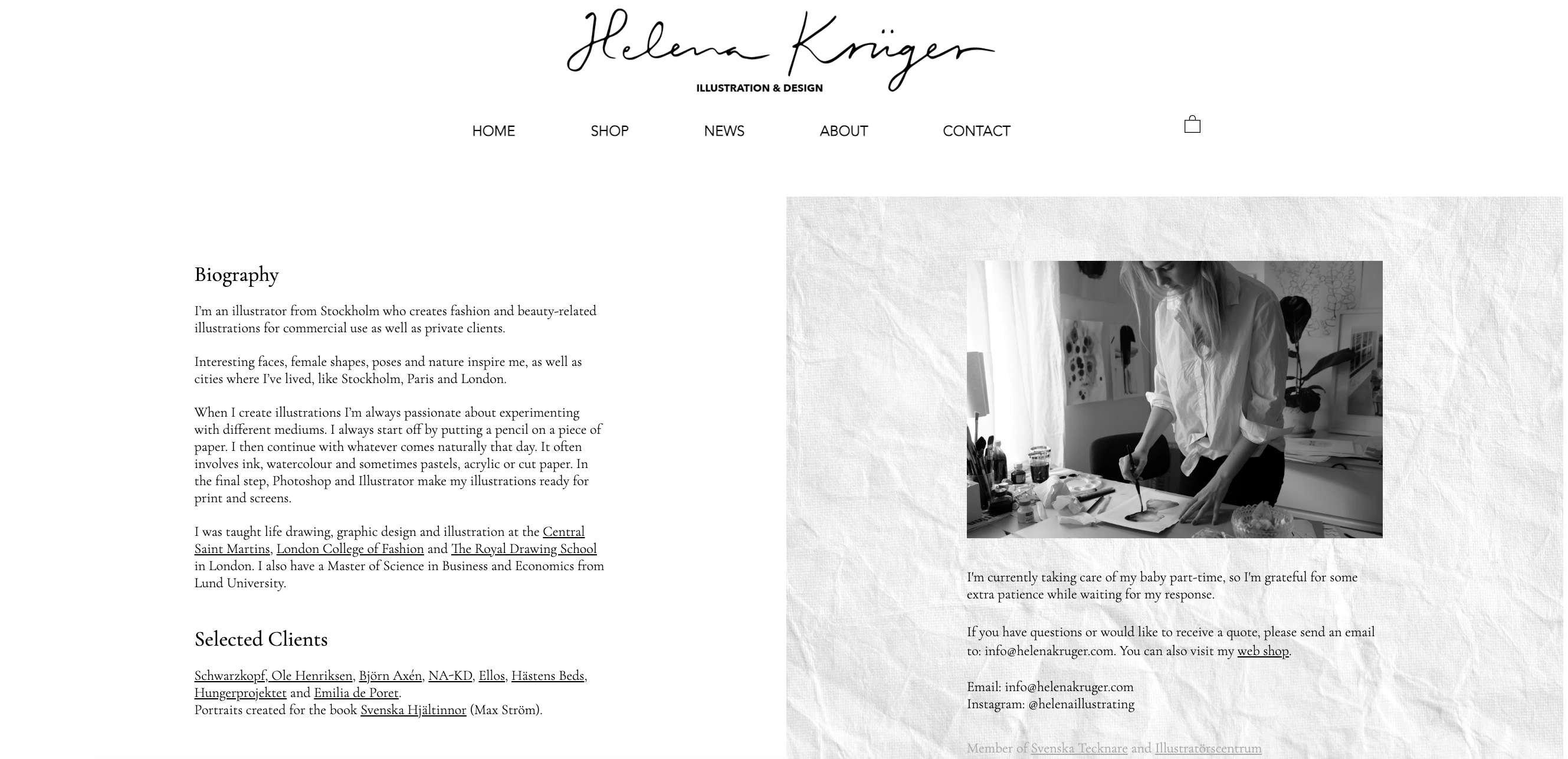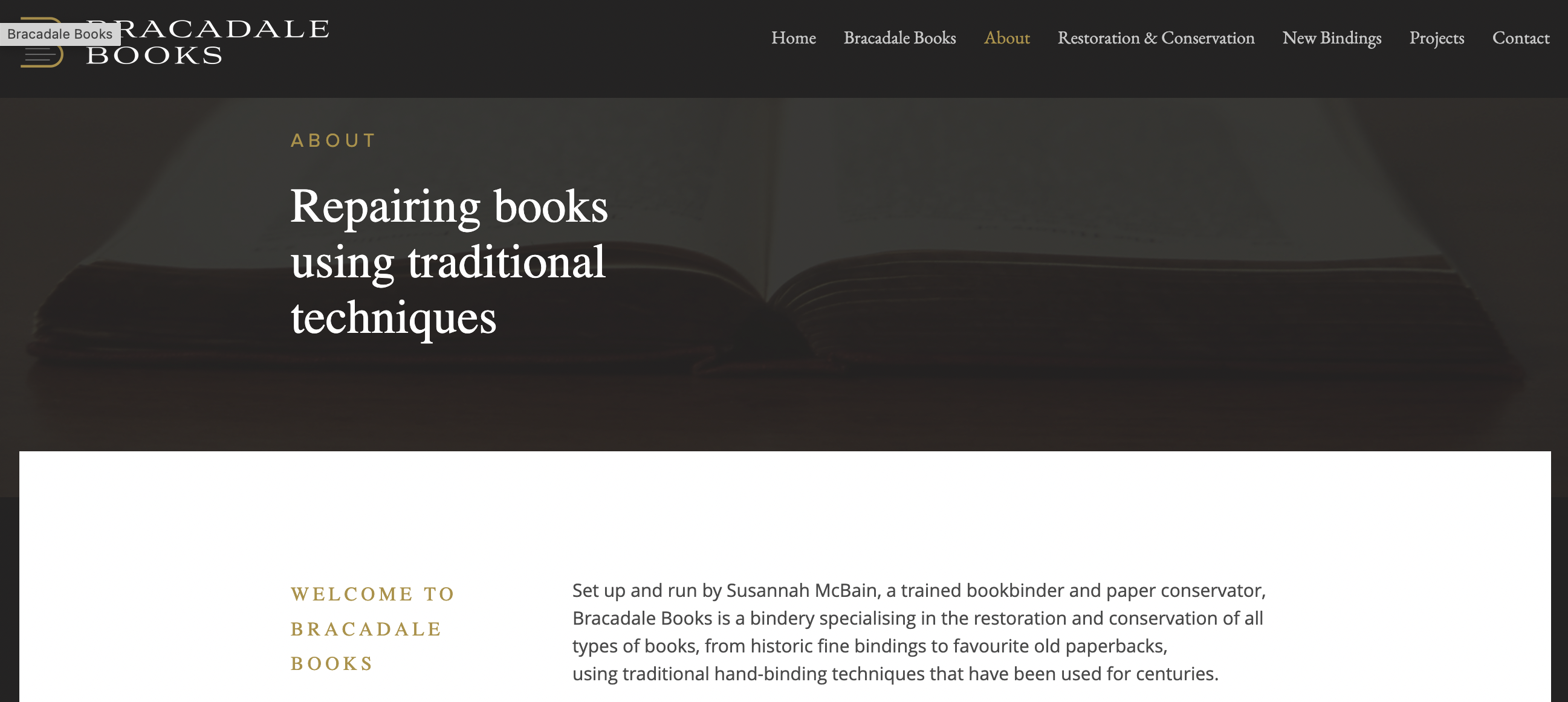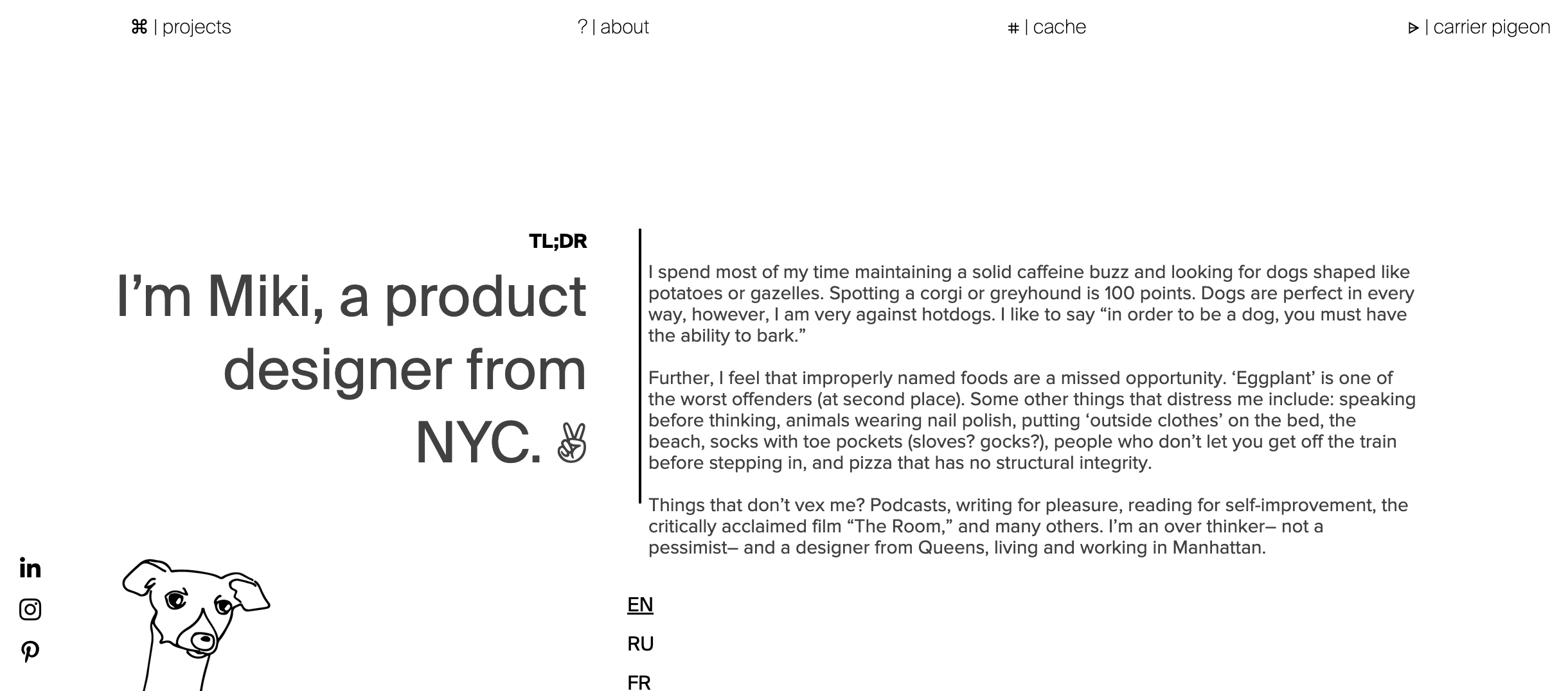
Easy Tips to Write a Successful ‘About Page’ + Examples
Last update: 22 March 2024 at 11:19 am
The about me page is one of the essential things on your website. It’s the first thing your readers will know about your company or your story. When you master your about me page, you’ll build better connections and improve your branding. By sharing your background, you will position yourself as an expert in your field.
We understand that it can be confusing to know how to get started writing your ‘about me page‘ and learning what to include and exclude. So we’ve put together some helpful tips on writing your about page and making it perfect.
Key Takeaways:
- About Page Importance: Crucial for branding and connecting with readers, offering insight into expertise and story.
- Dos:
- Optimize for SEO.
- Boast tastefully.
- Highlight benefits.
- Build trust.
- Engage with storytelling.
- Don’ts:
- Avoid robotic language.
- Steer clear of repetition.
- Eliminate grammatical errors.
What Is an About Me Page Used For?
Before we get into the nitty-gritty of constructing an about me page, its good to know why the about page is so crucial for your brand.
For starters, the about me page is one of the most important pages on any website, and it’s usually one of the most visited pages. It acts as one of the landing pages and gives a lot of insight into who you are and what you have to offer. Think of it as your chance to introduce yourself to your readers.
Put yourself in the position of one of your readers. As they arrive on your homepage, they view your bio. The about me page shows them:
- who
- what
- when
- where
- how
…to navigate your website and understand your business. First impressions count. Your about me page is the first impression that the reader has of you so make it good!
Dos and Don’ts of Writing an About Me Page
Since the about me page is basically the place where your readers decide if they want to learn more about your brand or invest in your business, it’s essential to avoid mistakes that could deter people from being interested in your brand.
Let’s look at some dos and don’ts of writing an about me page to help you perfect your introduction.
Dos
- Optimize– Do your SEO research and find what your target market is searching for. The process of SEO can significantly improve the success of a website. If you improve your SEO copywriting skills, then you can successfully increase the traffic on your page.
- Boast tastefully– This is your chance to showcase all your achievements, life-changing experiences, qualifications, and awards. However, try to avoid coming across as bragging. Use a straightforward approach. For example, instead of saying ‘ In 2012, everyone was in awe of me as I received the first prize at the bake-off’, try saying’In 2012, I was humbled as I won first prize at the bake-off.’.
- Highlight benefits– Talk about the benefits of your product or service. This will make readers want to know more about your brand. Try to use statistics or facts. For example, ‘ Our product improves battery life, would be better as ‘Our product improves battery life by 50%’.
- Build trust – As the first point of contact, your about me page is the chance to build trust with your readers. Now is an excellent time to talk about how many years your brand has been alive when it was established and any milestones your business has achieved. Try and talk about how your services or products have improved customers’ lives or your personal experience with them. Try to come across as trustworthy, polite, and reliable.
- Engaging and entertaining content – If you grab the attention of your readers in your about me sections, they’ll want to know more about you. Try to use some humor or exciting writing styles. If you make it a bit personal, it will be relatable and more enjoyable to read. Use a storyteller approach. Tell the story about how your business came about. Were you eating pancakes when the thought of bacon sauce popped into your head? Give a little content and make it fun to read.
Don’ts
- Be robotic – If you create an about me page that is robotic, nobody will complete reading it. To keep your content engaging, you should try and avoid too much formal writing. Try and find a balance of formal and informal writing to balance everything out. Pro tip: this is almost a given, but don’t use AI writing assistants to generate copy for your about page. That’s about as robotic as it can get.
- Blabber – If you go on about the same things, your about me page will become monotonous. Avoid repetition, mostly repeating things throughout your website. Try and be clear, especially when using facts.
- Make grammatical mistakes – Grammatical errors throughout your text make you look silly and unprofessional. Avoid these at all costs. Consider using Grammarly to help you.
Do you |
Discover the most relevant agencies for your project based on your own specific requirements.
Find an agency!Essential Features of an About Me Page
Headline
The headline is the first thing the reader sees. A good headline is clear, simple, fluff-free, and highlights benefits.
It’s best to include a sub-heading that further explains what your business is about. Remember that your sub-heading must provide a brief description of what you do or you could zoom in to a particular focal point for your target audience.
Images
The truth is most people need visual stimulus to stay engaged. Using pictures of a short video will help the reader stay engaged and learn more about your brand. Try not to create a collage; keep it professional. Use only a few necessary and suitable images. Make sure that the pictures or videos you use are related to your about me section.
Well-Organized Writing
Planning is the key to any successful piece of writing. If you decide on the structure of your main points before you begin writing, you will produce a concise and clear page. You could organize your about page in chronological order. This will help it flow effortlessly and make it easy to follow.
You could also separate things by categories. For example, first discussing all achievements, then discussing future aspirations, then contact details. Whatever you choose, make sure your writing is easy to read and understand. Try to avoid unique idioms and metaphors, which will make it confusing for your readers.
You may want to look into hiring a specialized copywriting agency to help you with your text.
Benefits
Although you’ll be sharing about your product, service, or brand, it’s important to tell people why what you do matters. It would help if you also informed your readers about what makes your product different and why they should buy from you. Make sure that it doesn’t come across as a sales pitch.
Originality
Your about page can really help you draw more attention to your brand and stand out from your competitors. If you succeed in creating a unique about page, you will be one of the memorable entrepreneurs.
Remember that many entrepreneurs have similar qualifications and experiences to yours, so you have to show what makes you so different when writing your about me page. A simple top tip for being original and memorable is to write differently about me pages on all your sites, pages, and social media accounts.
The style on each page is different. Usually, your business website will have a slightly more formal and professional manner. Include the same beneficial information such as expertise, background, and contact details but change the writing style to fit the context.
For instance, on Instagram, you could toss in a few jokes or appropriate slang, maybe even some emoticons, and you could keep your about me page clean, professional, and structured on your site.
Call to Action
Your about me page serves to bring more people to your website and draw them into learning more about your product and eventually making a purchase. Try to use at least two to three call-to-action snippets on your about page. To ensure your call to action is successful, you should use bold colors to make it stand out. Also, make sure you optimize them to be suitable for mobile users. Ensure they are visible and big enough to click on without having to zoom in.
Proof of Success
Showcasing your awards and recognition is an excellent way to show readers you are an expert in your field of interest. Adding this to your about page gives a good first impression and makes people want to know more about your company. You could add in some positive customer feedback or share how the product or service helped you personally.

Design and Layout
These days social media pages, blog sites, and pretty much all successful websites have one thing in common: eye-catching design.
Colours can really influence clients’ interest on your page. However, you won’t be making any sales on your about page; it’s still important to choose the best colours for your text, image captions, background, and links.
Research shows that primary colours red and blue have a significant impact on increasing purchases. Make sure that you use colours consistently and stick to the same colour scheme on your page guide, homepage, social media profiles, blog post, and everywhere else on your site.
Average Price of a Graphic Charter: Analysis of 2000+ Projects
A consistent visual identity is crucial for any company or organization looking to impact the market. A graphic charter is a working document gathering all the fundamental rules of use of the graphic signs that constitute the visual identity of a company or a brand. On the other hand, branding guidelines encompass a more comprehensive […]
Branding Guidelines: The Secret Recipes of Spotify, Uber and Yelp
Branding guidelines are the visual identity communicated by a brand. Logos, colors, typography, images and iconography, website, packaging, etc. A meticulous work that can take time but is essential. In this article, we take several examples to help you design your branding guidelines. We can also put you in touch with the best branding agencies. […]
Contact Information
It’s essential to give your visitors multiple ways to connect with you. Provide your email address, phone number, office address, and social media page. Typically, contact details appear at the bottom of the page, but you can try placing it at the centre using a call to action such as ‘Get more help here’.
On the one hand, having your contact details on display can be useful for business. On the other hand, if your business is rapidly expanding and you’re always getting emails and calls, you should consider removing your personal contact information. Remember to keep your social media links such as Instagram or Facebook, on your page. You could also consider whether you’d like people to contact you via social media apps instead of your page.
Important Questions to Ask Yourself
It can be extremely overwhelming to figure out what information should go into your about me page. By asking yourself some simple questions, you will simplify the process.
Try for a few minutes to think about your answer to each question. Make sure you don’t leave anything out! We’ve thrown in sample answers to help you along the line. Try to rephrase these to match your site style.
What is your current occupation, and how did you get to where you are?
Keep it concise and polite. Remember to avoid bragging and try not to come across as boastful. Start by stating what your career is. For example, ‘ John is an executive chef and restaurant owner.’. Then you go on to mention all other experiences, and you can touch on some skills or job functions.
For example,
‘He has almost thirty years of experience managing small-scale and large restaurants. His background in management, Chef de Cuisine, marketing, customer service, and H.R. makes him an all-rounder and asset to any team or business.
What are you most passionate about in your field?
Talk about what you love most about your work. Start with the main point and then break it down. For example, ‘ Joe is powered by his passion for excellent customer service and unique and memorable culinary experiences.’. Then talk more about how you fuel your passions.
You could mention any recreational activities that help build your career or further education and development programs you attend. For example,
He spends most of his weekends at the University of Chefs.Inc, where he gives culinary lessons to budding chefs. He is always learning new techniques and broadening his horizons by traveling around the world and working with chefs from different cultures.’
What are Your Greatest Achievements?
Now, this can be a tricky one to get right because it can be very tempting to talk about the dance battle you won ten years ago, but it’s best to keep those achievements for another time.
The aim here is to highlight only relevant achievements. For example, ‘Joes determination to offer the best culinary experience, resulted in his restaurant winning multiple awards as well as a Michelin star.’.
Remember to try and keep it not overtly formal so that you can add in relevant personal achievements. For example,’
Joe believes a business cannot succeed without happy staff. In 2011, he launched a yoga and meditation program for staff all across his outlets. This resulted in a more satisfied team and a better work-life balance. For Joe, this was one of his most outstanding achievements yet.’.
Golden Rules
Rules make things easier. We’ve compiled a list of golden rules to follow when writing your about me page.
- Know your target audience.
- As an entrepreneur, social media influencer, blogger, or anyone who needs an about page, you need to know who you’re talking to. Once you know your target audience, you’ll have most of your work done. If you’re not sure, you could check out google analytics or do it the old fashion way and take a survey.
- Give life to Facts
- If you try to lead purely with facts, then you will bore your readers instead of persuading them. Use the points in exciting ways. As a rule of thumb, never leave a fact dangling. Always explain why that fact is essential.
- Show your Heart
- Don’t be afraid to show your readers who you are and what you stand for. Talk about your values and life experiences that shaped you.
- Reveal your face
- If possible, try to add a picture of yourself on your about me page. This will help you build trust by adding the human element. Your readers will appreciate the personal touch, and with everything online, it helps to see the person’s face. It’s best to get a professional photo taken, but you can include other pictures such as vacations or business trips.
- Elaborate on your professional journey
- It’s not fair to expect people to know what you’ve done to get where you are. Talk about the steps you’ve taken to further your career. This will also help you elaborate on what made you the expert that you are today.
- Talk about how you can improve your reader’s lives
- Talk a little about the impact you could have on people’s businesses, relationships, or whatever field you’re in. It’s best if you take practical steps as well, such as adding links to specific items or services.
- Show how you’ve helped others
- In line with the previous point, you can include some customer testimonials or reviews. You can even add links to some of your work or your portfolio.
- Make the benefits clear
- Help your readers understand how your work is beneficial. You can link some social media comments or relevant posts.
- Always include more than one call to action
- As people are reading your about me page, they’ll want to find your services. If you use only one call to action, they’ll have to search for it when they’re done reading. That’s not fun or efficient. The about page should include numerous calls to action so while reading at any point a reader can find a link to your blog post, product or service information page, or contact details such as your email address.
- Focus on your reader
- The about me page is not just about you. When you’re writing always keep your target audience in mind. What could you write to make them feel welcomed and appreciated? Something that will tell them about you but also make them want to come back to your page. To ensure that readability is sound, try and write as you speak. Your about page will be more comforting and relatable.
Common Mistakes on the About Me Page
Since the about page is visited the most, it’s crucial to make it as user-friendly as possible. Here are some common mistakes that people tend to make on their about page:
Hard to Find Credentials or Name
If a reader wants to get in touch with you or access your social media accounts, they’ll need your name on your about page. It’s essential to use your full name or full business name. Avoid using nicknames or spam names like “The queen of e-commerce”. Keep it professional and be yourself.
If you have a name like Karen Johnson, you can add a middle name or something to make it more memorable for readers. For example, ‘Karen Wilodene Johnson’. If you want to keep your name private, it’s okay to use a pseudonym. While you add your name, don’t forget to add your credentials as well.
Hidden Face
As important as it is to be recognized, in current times with harassment and cyberbullying, it’s understandable why lots of people don’t post a photo of themselves. So posting a picture of yourself has its pros and cons. If somebody is looking to hire you, recommend you, or test out your services, they may feel more at ease if they could grasp what kind of person you are.
To get an idea of who you are, your readers should generally look at your photo and your writing voice. Plus putting a face to the name does help make you more memorable. However, if you choose not to use your picture try not to leave a blank. You can use a logo or image that showcases your work instead.
Video Introduction Only
Video introductions can be excellent. Those who visit your page will be able to see you in action. With video introductions, your page will be more lively, and readers will get to see you, hear you speak, and get a better idea of the kind of person you are.
However, leaving only a video introduction has some severe downfalls:
- Some people like it and others hate it. Not everyone enjoys watching the video; some prefer reading about you on your page.
- It’s not always convenient to watch a video. If people are at the office or on a bus, they might not want to watch a video of you. Also, videos require a better internet signal, which is not always possible.
- Videos can be too long. Let’s be honest; there’s a lot you need to cover in your introduction. You could try to make the video short, but then you’d leave out vital information.
The Never-Ending Story
Everybody loves stories. Stories are fun, exciting and keep you interested, but not all stories are created equally. You could tell a story about how you started doing your work but highlight the important parts of the story- beginning, middle, and end. If you go on talking about a story, then your page will lack professionalism and will be very difficult to read. Keep it exciting and keep everything as concise as possible.
About Page-Different Scenarios
There are many times in life where you may need to write an about page. So far we’ve focussed on a general about page tips. Let’s break down some different about page scenarios, and we’ve included examples to help you along the way.
Example 1 -A business site
Keep it professional and follow the tips we’ve discussed so far, such as highlighting benefits, talking about qualifications, and not rambling. Let’s look at an example:
Keith Brown is the founder and CEO of Company A, a leading creator of online content, web design and I.T. He is fuelled by his passion for eye-catching design and efficient I.T. processes. In the past 10 years, he has worked with more than 10 000 business owners to improve their Website efficiency, I.T. and content.
Keith holds an MBA and a B.A. Information Technology, where he was captain of the football team. On many occasions, Keith learnt the importance of never giving up and learning from your mistakes. He continues to use these lessons as part of his daily work ethic as he works on building Company A into a Fortune 500 company.
Example 2- A Personal Website or Blog
A blog’s goal is to be casual but professional, friendly yet serious and fun yet informed. Balance is critical here. The about pages are usually a lot shorter. Let’s take a look at an example:
David Smith holds a Bachelors of Arts in Psychology and Literature from the University of Washington. Since 2012, he has worked as a counsellor at a well-established HIV/AIDS counselling centre. He’s also the publisher of 15 medical journals and has worked on multiple research projects within the field of Psychology.
David lives in New York with his wife Rose and their adorable pug, Woof. When he’s not busy writing journals or researching, he spends his time blogging about his life in New York and the lessons he’s learnt along the way. To get in touch with David, you can email him at david@gmail.com or leave your details in the box below to be part of Davids email list.
Example 3: For a social media platform
A social media about page is usually more casual, a lot shorter and to-the-point. This type of about page isn’t going to cover all information, and it’s usually written in the first-person format. Let’s look at an example:
A full-time mom to five wonderful fur babies and part-time influencer/businesswomen. I founded VeganFashion Ltd in 2012 to bring cruelty-free fashion to the world! Check out my creations here: (site link).
Most Important Tip: Updating
The best thing you can do for your site is to update everything-even your about page continually. If you feel inspired to change or add something, go for it. Remember that your about page is one of the essential pages on your site. We hope all these tips were useful to you. All the best and happy writing!








